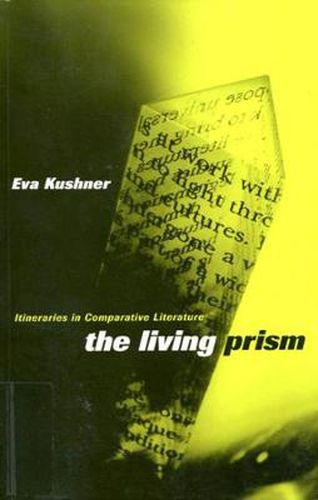Readings Newsletter
Become a Readings Member to make your shopping experience even easier.
Sign in or sign up for free!
You’re not far away from qualifying for FREE standard shipping within Australia
You’ve qualified for FREE standard shipping within Australia
The cart is loading…






In The Living Prism Eva Kushner provides a lively panorama of reflections and experiences in comparative literature studies, showing that comparative literature in the post-World War II era has been an experimental ground for the human sciences. She discusses the current state of comparative literary studies and the renewed role of comparative literature in a world that is at once more plural and more globalized, as well as some of the debates now taking place within literary criticism as a whole, including the interchange between comparative literature and cultural studies, the re-envisaging of the Renaissance, the work of Northrop Frye, myth and literature at the end of the twentieth century, modern drama, and post-colonialism. To play an important role in the human sciences, comparative literature had first to free itself of a number of restrictive habits, such as an insufficiently critical literary history. In order to do this, it had to think theoretically, but without yielding to the temptation of letting theory become an end in itself. Kushner demonstrates that, while under strong pressures to be a more rigourous science, comparative literature has realized that in the human sciences the validation of knowledge has to seek its own tests and criteria, becoming increasingly more open to individuality, difference, and life situations and controlling its tendency to universalize. With its emphasis on whether literary history is possible and the problems it raises for literary theory and for comparative literature in particular, The Living Prism adds an important dimension to the ongoing debate about criticism and comparative literary studies.
$9.00 standard shipping within Australia
FREE standard shipping within Australia for orders over $100.00
Express & International shipping calculated at checkout
In The Living Prism Eva Kushner provides a lively panorama of reflections and experiences in comparative literature studies, showing that comparative literature in the post-World War II era has been an experimental ground for the human sciences. She discusses the current state of comparative literary studies and the renewed role of comparative literature in a world that is at once more plural and more globalized, as well as some of the debates now taking place within literary criticism as a whole, including the interchange between comparative literature and cultural studies, the re-envisaging of the Renaissance, the work of Northrop Frye, myth and literature at the end of the twentieth century, modern drama, and post-colonialism. To play an important role in the human sciences, comparative literature had first to free itself of a number of restrictive habits, such as an insufficiently critical literary history. In order to do this, it had to think theoretically, but without yielding to the temptation of letting theory become an end in itself. Kushner demonstrates that, while under strong pressures to be a more rigourous science, comparative literature has realized that in the human sciences the validation of knowledge has to seek its own tests and criteria, becoming increasingly more open to individuality, difference, and life situations and controlling its tendency to universalize. With its emphasis on whether literary history is possible and the problems it raises for literary theory and for comparative literature in particular, The Living Prism adds an important dimension to the ongoing debate about criticism and comparative literary studies.